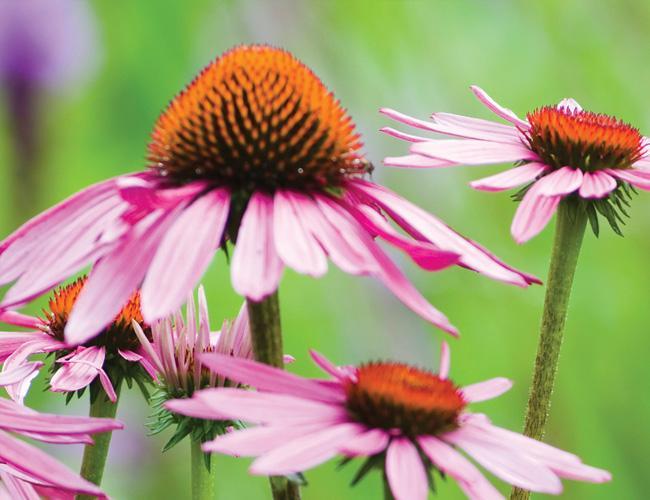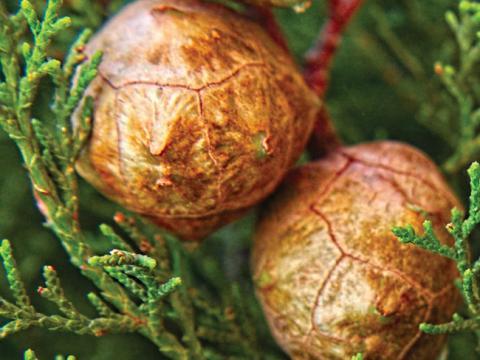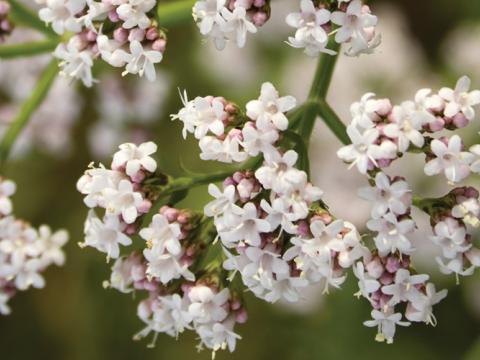Ancestral use
Native Americans were the first to recognise the value of this plant and used it to treat various conditions: wounds, venereal diseases, fevers, snake bites... In the 19th century, settlers started to trade in the plant. Following it introduction into Europe in around 1895, it was soon widely used for many conditions.
Botanical details
Echinacea is a hardy plant with thick and branched erect stems that are hairy with a waxy texture. It grows to a height of between 60 and 180 cm. Its flowers are single, rounded heads, purple in colour. It is found in rocky, open forests and prairies. The roots are the part of the plant used for therapeutic purposes.

Properties
Recent studies have confirmed that echinacea root has immunomodulating properties, which have effects on the activation of various immune system cells1;2;3;4. This action is due to the synergy generated by the two main families of active substances present in the root - alkylamides and polysaccharides. Moreover, due to its antibacterial and antiviral properties, echinacea is the principal plant used to prevent recurrent ENT infections5.
Indications
- Prevention and management of ENT and lung conditions
Possible combinations
Echinacea + Cypress:
flu and flu-like illnesses, colds

Echinacea + Liquorice:
viral sore throat, pharyngitis

Echinacea + Black radish:
prevention of chronic recurrent sinusitis

Echinacea + Scots pine:
bronchitis with chesty (productive) cough

Echinacea + Plantain:
bronchitis with dry cough

Precautions
As a preventive therapy, ideally take for 5 days out of 7 or for 1 week per month. Anyone with an auto-immune or progressive disease should seek advice from their doctor. Contraindicated for anyone with an allergy to plants in the Asteraceae family.






